Growing in Grace
Worship is a key element to growth, and public worship is the quintessential worship for the Christian. We meet with God in a corporate dialogue, encouraged and aided by the brothers and sisters near us. In public worship we speak to God as a people, and He calls us to belief and action. Public worship combines all the different elements of prayer, praise, and encouragement from the Bible. Worship also makes us grow by giving us a greater appreciation of God’s multifaceted grace. It often follows the outline of the gospel itself, as well as presenting the gospel to believer and unbeliever alike for their help and growth. Worship brings us into the environment of heaven, whereby we can be strengthened by the presence of God and His people.
Worship also deepens our knowledge of Him in the Scripture, especially as it is preached. The sermon is an exposition of the Scripture, not merely the opinions of the preacher. The sermon explains, illustrates, and applies a text or section of Scripture. The sermon is to be faithful to the teaching of God’s Word, and plain enough for all to understand. Scripture is clear that preaching is to be the staple activity of the pastor and the main means by which God converts, grows, and matures His people. Several Greek words in the original texts of the Scripture are translated preach in our English Bibles. One is more powerful than the others. It refers to the solemn task only the pastor is commissioned to do. This Greek word, kerusso, often referred in ancient culture to one man speaking publicly to many on behalf of a king. This man is charged with calling out the message exactly as he received it, with all the force with which it was given him. If carefully and accurately delivered, the herald carries all the authority of the king himself. God has called the pastor to preach like this with all His heart (2 Timothy 4:2). The gravity of preaching is best expressed by the last few words of Romans 10:14. A literal translation of the verse leaves out the of in the first part of the verse and thus implies that the voice we hear in preaching is the voice of Christ! A faithful translation would be, “But how are they to call on him in whom they have not believed? And how are they to believe in him [of] whom they have never heard? And how are they to hear Him [implied] without someone preaching [the herald]?” It is hearing the voice of Christ through and in the sermon that feeds our soul and helps us grow. Though this passage does not intend to equate the preacher’s sermon with direct revelation from God, these are the strongest words in all of Scripture concerning the means Christ uses to call to mankind.
Worship and preaching bring together so many elements of Christian growth that the leaders of First Presbyterian Church have decided that worship with preaching is our first priority. Consequently we worship in the morning and the evening at First Presbyterian. The morning worship is more formal than the evening, and the music is designed more to lift our heads to the majesty and grandeur of God. In the evening the music selection is broader, using a greater variety of tunes and formats. Both services feature preaching, but the style is frequently different. The morning preaching is often more focused on exhorting the Christian to growth and the unbeliever to commitment. The evening sermon is frequently intended more to teach the Christian in his daily walk and to build him up in the knowledge of the Word. Hearing both sermons allows the believer to gain the benefits of preaching and teaching. Biblical worship that features Biblical preaching is the first and most important part of Biblical discipleship! Noted author and theologian Sinclair Ferguson said in a recent sermon, “I don’t know how anyone can expect to grow listening to only one sermon a week!” We can confidently say that you will not grow unless you are regularly attending worship in a church that preaches Scripture as God’s true word.
Goals for the Family
Make it your personal goal to “grow in the grace and knowledge of our Lord and Savior Jesus Christ” (2 Peter 3:18)
Growing in Christ should be a chief family goal. Knowing Christ better, making Him known, and growing in Him should always take highest priority in a Christian family.
In fact, it would be a great help to any family to lay out their priorities, in order, in the context of the goal of “growing and glorifying.” Social life, school activities, recreation, Church, community service, clubs, rest, the Sabbath day, work, and family time all should be rated as to which is more important for your family. Most of us just go with what seems best at the time. But it’s so helpful to have talked out the potential conflicts before they occur.
- If sports and spiritual growth opportunities conflict, which is the priority?
- If school work and social calendars conflict, which is the priority?
- If a community service committee meeting and a party conflict, which is the priority?
Though many of us instinctively head toward the proper choice in these easier examples, written priorities might guide us through the harder decisions every family has to make.
